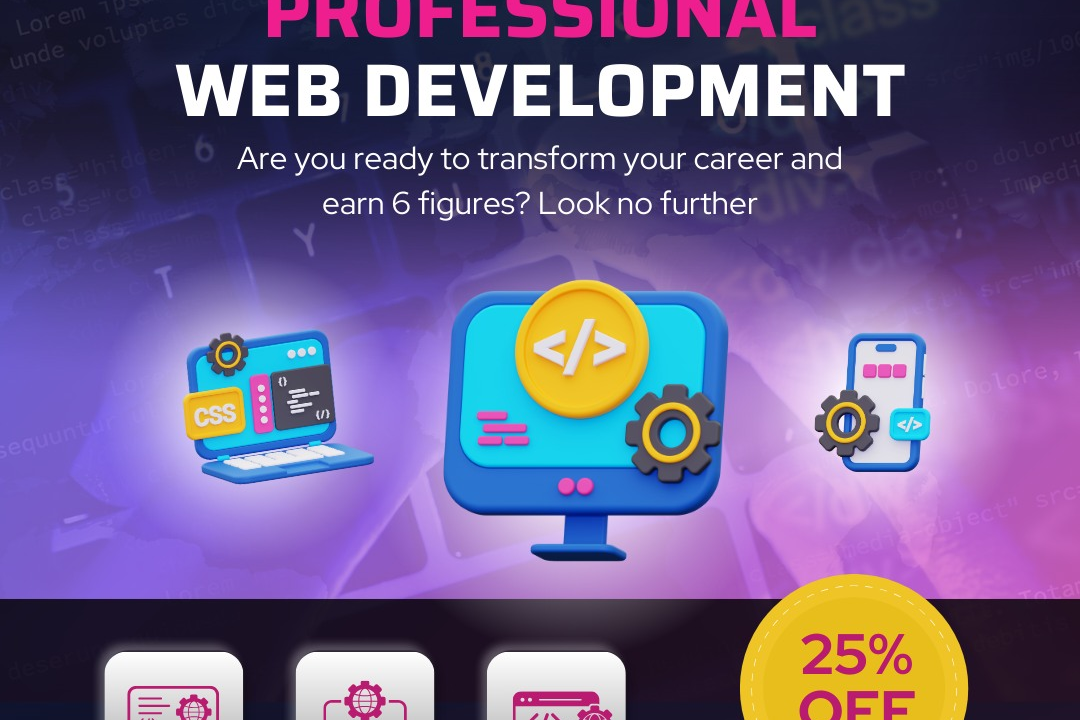Selenium Training Centres Chennai
Selenium training centers in Chennai are specialized educational institutions that focus on teaching
Selenium Training Centres Chennai
Selenium training centers in Chennai offer valuable opportunities for aspiring software testers to acquire essential skills in automated testing. By providing hands-on training with real-time projects, these centers enable participants to learn the practical applications of the Selenium framework, enhancing their understanding of web application testing. The curriculum is designed to cater to various skill levels, from beginners to advanced testers, ensuring a comprehensive learning experience. With expert instructors and access to industry-relevant tools, participants can significantly boost their employability and preparedness for careers in the fast-growing field of quality assurance and software testing.
To Download Our Brochure: https://www.justacademy.co/download-brochure-for-free
Message us for more information: +91 9987184296
Selenium training centers in Chennai offer valuable opportunities for aspiring software testers to acquire essential skills in automated testing. By providing hands on training with real time projects, these centers enable participants to learn the practical applications of the Selenium framework, enhancing their understanding of web application testing. The curriculum is designed to cater to various skill levels, from beginners to advanced testers, ensuring a comprehensive learning experience. With expert instructors and access to industry relevant tools, participants can significantly boost their employability and preparedness for careers in the fast growing field of quality assurance and software testing.
Course Overview
The Selenium Training course at JustAcademy in Chennai offers a comprehensive curriculum designed to equip learners with the essential skills needed for automated testing of web applications. This course covers key concepts such as Selenium WebDriver, TestNG, and automation frameworks, providing practical experience through hands-on projects to simulate real-world scenarios. Participants will explore best practices in test design, execution, and reporting, while gaining insights into integrating Selenium with other tools like Maven and Jenkins. Ideal for both beginners and experienced testers, this course empowers individuals to effectively enhance their testing capabilities and stay ahead in the dynamic field of software quality assurance.
Course Description
The Selenium Training course at JustAcademy in Chennai provides an in-depth exploration of automated testing for web applications using the Selenium suite. This course is meticulously designed to impart practical knowledge and hands-on experience with Selenium WebDriver, TestNG, and popular automation frameworks. Participants will engage in real-time projects that mimic industry scenarios, enabling them to understand best practices in test automation, script development, and execution. With expert trainers guiding the process, learners will also discover integration techniques with tools like Maven and Jenkins, equipping them with the necessary skills to excel in software testing and quality assurance roles. This course is suitable for aspiring testers and seasoned professionals looking to enhance their automation testing expertise.
Key Features
1 - Comprehensive Tool Coverage: Provides hands-on training with a range of industry-standard testing tools, including Selenium, JIRA, LoadRunner, and TestRail.
2) Practical Exercises: Features real-world exercises and case studies to apply tools in various testing scenarios.
3) Interactive Learning: Includes interactive sessions with industry experts for personalized feedback and guidance.
4) Detailed Tutorials: Offers extensive tutorials and documentation on tool functionalities and best practices.
5) Advanced Techniques: Covers both fundamental and advanced techniques for using testing tools effectively.
6) Data Visualization: Integrates tools for visualizing test metrics and results, enhancing data interpretation and decision-making.
7) Tool Integration: Teaches how to integrate testing tools into the software development lifecycle for streamlined workflows.
8) Project-Based Learning: Focuses on project-based learning to build practical skills and create a portfolio of completed tasks.
9) Career Support: Provides resources and support for applying learned skills to real-world job scenarios, including resume building and interview preparation.
10) Up-to-Date Content: Ensures that course materials reflect the latest industry standards and tool updates.
Benefits of taking our course
Functional Tools
1 - Selenium WebDriver: Selenium WebDriver is a fundamental tool used in the course, providing a robust framework for automating web applications. It allows testers to interact with web elements using various programming languages such as Java, C#, Python, and Ruby. This flexibility enables students to choose a language they are comfortable with, aligning their learning with industry standards. The course delves into its architecture, explaining how it communicates with the browser, and covers essential features like navigation, element identification, and synchronization, which are critical for effective test automation.
2) Selenium IDE: The Selenium Integrated Development Environment (IDE) is a user friendly tool that simplifies the recording and playback of test scripts. In the course, students learn how to quickly create tests without needing extensive coding knowledge. This tool is particularly beneficial for beginners, allowing them to grasp the basics of functional testing and automation practices. The course includes practical sessions where students utilize Selenium IDE to create, edit, and debug test cases, enhancing their hands on experience significantly.
3) Selenium Grid: Selenium Grid is crucial for executing tests on different machines and browsers simultaneously, catering to cross browser testing needs. The training program covers its setup and configuration extensively, teaching students how to create grids that distribute tests efficiently. This capability greatly reduces test execution time and improves productivity. Understanding Selenium Grid prepares students for real world scenarios where application performance across various environments is essential, making their skills highly sought after in the job market.
4) TestNG: TestNG is a powerful testing framework integrated into the Selenium training program, adding structure and organization to tests. Students explore its features, such as annotations, test configuration, test dependencies, and data driven testing. The course emphasizes the importance of using TestNG for executing Selenium tests, allowing for flexible test management and reporting. By the end of the course, students can leverage TestNG to enhance the reliability and maintainability of their automation scripts.
5) Maven: Maven is a build automation tool that simplifies project management in Java applications. Within the program, students learn how to use Maven to manage dependencies, build processes, and project configurations, integrating it seamlessly into their Selenium tests. This knowledge is vital for maintaining organized project structures and ensuring that all resources are up to date. The course includes practical examples that demonstrate how Maven can streamline automation testing workflows, making it an invaluable part of the curriculum.
6) Jenkins: Continuous Integration/Continuous Deployment (CI/CD) is increasingly important in software development, and Jenkins is the leading tool for automating these processes. The Selenium training course includes a comprehensive module on Jenkins, where students learn how to set up CI pipelines to automate the testing process. With hands on exercises, learners will be equipped to integrate their Selenium tests with Jenkins, ensuring that code changes are continually tested and validated. This skillset not only enhances students’ employability but also prepares them for dynamic development environments.
7) Page Object Model: The Page Object Model (POM) design pattern is a key concept taught in the Selenium course, helping to create a clear separation between test code and application UI. Students learn to design page classes that encapsulate the interactions with web elements, promoting code reusability and maintainability. By implementing POM, learners can write cleaner and more organized testing scripts, making it easier to modify tests when the application changes, which is a critical aspect of robust test automation.
8) Locators and XPath: Understanding how to identify web elements is essential for effective test automation. The course provides in depth training on various locator strategies, including ID, Name, Class Name, CSS Selector, and XPath. Students will engage in practical exercises that focus on crafting accurate and efficient XPath expressions, as well as using CSS Selectors, helping them become proficient in locating and interacting with different web elements. Mastering these techniques ensures that learners can handle complex web layouts in real world testing scenarios.
9) Exception Handling: Testing can often encounter unexpected behaviors, necessitating robust exception handling mechanisms. The course covers how to implement exception handling strategies within Selenium scripts. Students will learn to manage timeouts, handle stale elements, and apply various try catch blocks to create resilient test scripts. By the end of the course, learners will be able to gracefully handle errors and ensure their automated tests are robust against common issues that arise during execution.
10) Data Driven Testing: Data driven testing is a critical aspect of automation that allows testers to run the same test with different inputs. This course includes comprehensive training on how to implement data driven testing using external data sources like Excel, CSV, and databases. Students learn how to manage data sets effectively, ensuring that their test cases can handle multiple scenarios efficiently. This skill is invaluable, as it significantly increases test coverage without requiring extensive script modifications.
11 - Test Reporting: Effective reporting is crucial to understanding test results. The course introduces students to various reporting tools and frameworks compatible with Selenium, such as ExtentReports and Allure. Learners will create detailed test reports that provide insights into test execution, pass/fail rates, and failures. This knowledge enables testers to communicate results effectively to stakeholders, promoting better decision making based on accurate data.
12) Mobile Testing with Appium: With the growing need for automation in mobile app testing, the course includes an introduction to Appium, a popular tool for automating mobile applications. Students learn how to set up and run tests on both Android and iOS platforms. This module expands their automation skills beyond web applications, preparing them for a broader range of testing opportunities in the market.
13) Framework Development: The course culminates in a project where students are tasked with developing a comprehensive test automation framework. This project synthesizes all the skills learned throughout the course, including POM, TestNG, Maven, and Jenkins. By constructing a full framework, learners gain practical experience that prepares them for challenges they will encounter in real world testing environments and demonstrates their capabilities to potential employers.
14) Performance Testing Basics: In addition to functional testing, the course introduces the principles of performance testing. Students learn how performance impacts user experience and application reliability. While Selenium primarily focuses on functional testing, understanding performance testing provides learners with a holistic view of the software testing landscape, enhancing their value in a testing team.
15) Industry Best Practices: Throughout the course, emphasis is placed on industry best practices for test automation. Students learn about coding standards, version control, and the importance of modular testing strategies. Discussions around agile methodologies and how automation fits into the continuous development lifecycle ensure that learners are equipped with the knowledge to thrive in modern software development environments.
Browse our course links : https://www.justacademy.co/all-courses
To Join our FREE DEMO Session:
This information is sourced from JustAcademy
Contact Info:
Roshan Chaturvedi
Message us on Whatsapp:
Email id: info@justacademy.co
The Complete React Native Course Create Beautiful Apps












